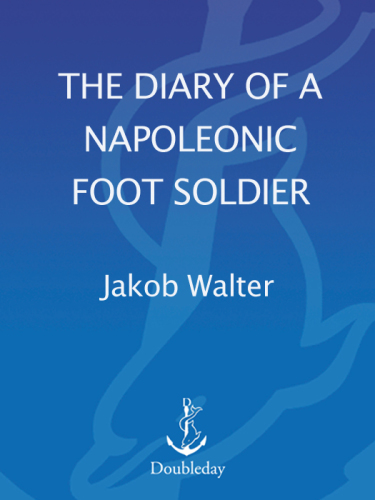
Diary of a Napoleonic Footsoldier
کتاب های مرتبط
- اطلاعات
- نقد و بررسی
- دیدگاه کاربران
نقد و بررسی

July 29, 1991
Of the half - million men who invaded Russia in Napoleon's army in June 1812, barely 25,000 survived. One who did was the author of this diary, Jakob Walter (1788-1864), a German private soldier from Westphalia. First conscripted in 1806, he was recalled to duty in 1809 and again in 1812. Walter's writing is unemotional and non-interpretive; he describes straightforwardly what he experienced. The account of the 1812 campaign--Napoleon's march on Moscow and inglorious retreat--takes up three-quarters of this short volume and constitutes its most interesting portion. In a chronicle of progressive demoralization, Walter observes how the instinct for self-preservation, under the pressure of Cossack attacks and treachery by erstwhile allies, leads to savagery among Napoleon's troops. The common-soldier perspective is rare among the mass of material left by veterans of the 1812 campaign and the book will be of interest to the general reader as well as the scholar. This edition includes six short letters home by other German soldiers in the Grand Army, all less interesting than Walter's diary. Raeff is professor of Russian studies at Columbia University. Illustrated.

August 1, 1991
More memoir than diary, this slim volume contains the reminiscences of a young German conscript into the army of Napoleon in the campaigns of 1806, 1807, 1809, and 1812-13. As such, it represents one of the few historical documents that portray the life and death of common soldiers of the period. As the army fought its way back and forth across Eastern Europe, young Walter encountered Poles, Russians, Jews, and other groups, and his descriptions of his interactions with these "others" illuminates attitudes and prejudices of German troops of the period. The firsthand description of the retreat of a starving army from Moscow and the attendant breakdown of discipline and morale will interest military historians as well. Walter's book is reminiscent of Guy Sajer's World War II memoir The Forgotten Soldier ( LJ 12/15/70) and should be popular with a similar audience; it belongs in libraries with Napoleonic history or fiction collections.-- Stanley Planton, Ohio Univ.-Chillicothe Lib.
Copyright 1991 Library Journal, LLC Used with permission.

























دیدگاه کاربران